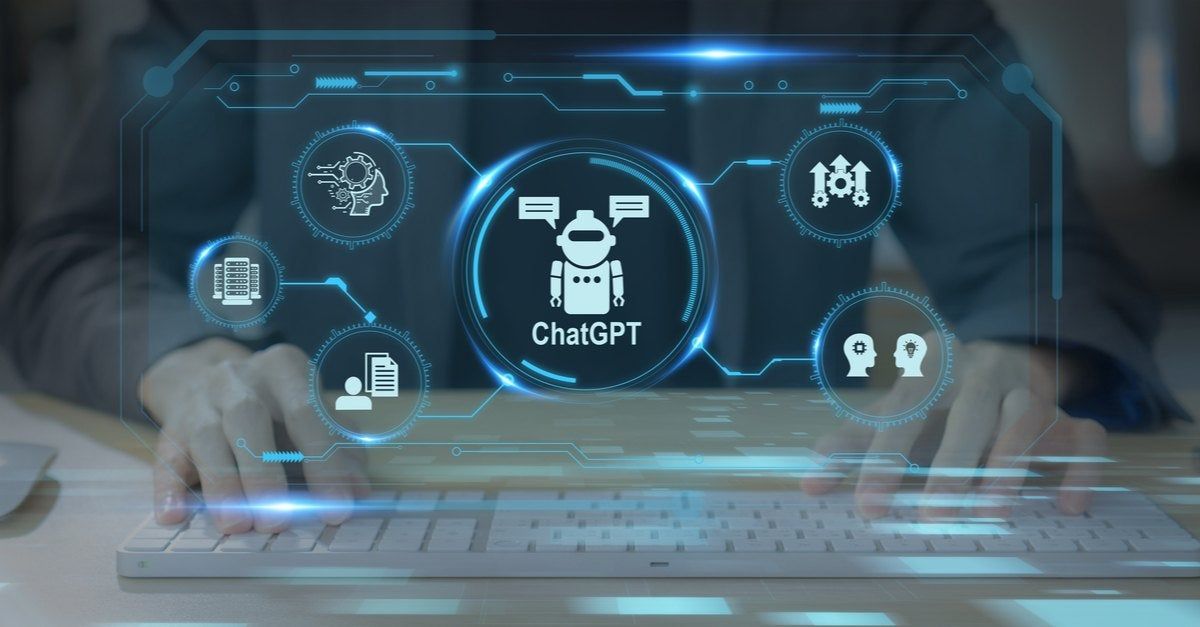
Unmasking Chatgpt: Cybersecurity Implications & Ai Revolution

In the era of rapid technological advancements, artificial intelligence (AI) has emerged as a game-changer across various industries. One significant development in the AI landscape is the rise of ChatGPT and other third-wave generative AI models. These models possess incredible capabilities to generate human-like text, revolutionizing the way we interact with machines. However, as we delve deeper into this AI revolution, it is crucial to unmask the potential cybersecurity implications that accompany this transformative technology.
The Power of ChatGPT and Third-Wave AI Models
A significant advancement in natural language processing is ChatGPT, which is based on the OpenAI-developed GPT-3.5 architecture. It can understand and generate text with remarkable coherence and context. Third-wave generative AI models, like ChatGPT, go beyond their predecessors by incorporating even larger datasets and more advanced techniques. These models have garnered widespread attention due to their ability to perform tasks such as answering questions, generating creative content, and even simulating human conversation.
The Downside of ChatGPT: Cybersecurity Implications
Malicious Use of AI
Malicious actors may take advantage of ChatGPT's immense power for illicit purposes. Cybercriminals could leverage the technology to generate convincing phishing emails, spoofed identities, or deep fake content, thereby enhancing the sophistication of their attacks. This raises concerns about the potential for AI-generated content to deceive individuals and bypass traditional security measures. To counteract this, cybersecurity experts need to develop advanced techniques and stay abreast of the latest cybersecurity trends to effectively identify and mitigate such threats.
Manipulation and Disinformation
ChatGPT's text-generation capabilities can be harnessed to spread false information or manipulate public opinion. By mimicking real human voices, these models can amplify the reach and impact of disinformation campaigns, leading to social unrest or political instability. Cybersecurity professionals must possess strong cybersecurity skills and expertise in AI to detect and combat these malicious attempts at manipulating information. Additionally, staying updated with cybersecurity certifications that cover AI-related threats can help professionals stay ahead in the ever-evolving cybersecurity landscape.
Data Privacy Concerns
To train models like ChatGPT, vast amounts of data, including personal information, are required. This raises concerns about data privacy and security. Mishandling or inadequate protection of such data could lead to severe breaches, compromising individuals' sensitive information. A cybersecurity expert must be well-versed in data privacy regulations and implement robust security measures to safeguard data during the AI training process. Keeping up with emerging cybersecurity technologies and trends can help professionals address data privacy concerns effectively.
Statistical Insights on Cybersecurity Implications
Rise in AI-Related Cyberattacks
According to a recent study by cybersecurity firm McAfee, AI-related cyberattacks have surged by 25% in the past year. This alarming trend highlights the increasing interest of threat actors in exploiting AI technologies for malicious purposes. Adversaries are leveraging AI to automate their attacks, evade detection, and amplify the scale and impact of their operations. Cybersecurity professionals equipped with cybersecurity skills and expertise in AI can proactively identify and respond to these emerging threats.
AI as a Double-Edged Sword
A report by PwC suggests that while AI can enhance cybersecurity defenses, it can also introduce new vulnerabilities. As AI becomes more prevalent, cybercriminals are likely to adopt AI-driven attack techniques, posing a significant challenge for security practitioners. Cybersecurity experts must stay updated with the latest cybersecurity trends and continuously enhance their skills to effectively address evolving AI-driven threats. Additionally, collaborating with AI researchers and developers can help bridge the gap between AI advancements and cybersecurity practices.
Mitigating the Cybersecurity Risks
Robust Model Training
Developers and researchers must prioritize training AI models like ChatGPT on datasets that are free from bias, offensive content, and potential security loopholes. It is crucial to collaborate with cybersecurity experts during the model development process to ensure the incorporation of robust security measures. Rigorous testing, including vulnerability assessments and penetration testing, is essential to identifying and addressing potential weaknesses in AI systems.
Explainable AI
Building transparent AI models is crucial for better understanding their decision-making processes. By incorporating explainability into AI systems, we can ensure that the outputs and recommendations provided by these models are trustworthy and devoid of hidden malicious intent. Cybersecurity experts play a vital role in advocating for explainable AI and developing techniques to analyze and interpret AI-generated results, enabling effective oversight and accountability.
Collaboration and Regulation
The cybersecurity community, AI developers, and regulatory bodies must work together to establish standards and guidelines for the responsible development and deployment of AI systems. Clear policies regarding AI's use, especially in sensitive domains like national security and finance, can help prevent potential cyber threats. Regular knowledge sharing, collaboration between cybersecurity experts and AI researchers, and adherence to established cybersecurity frameworks are crucial in mitigating the risks associated with ChatGPT and third-wave AI models.
To Conclude
As ChatGPT and third-wave generative AI models continue to evolve, it is imperative to acknowledge the cybersecurity implications they bring along. While these technologies hold immense potential, they must be wielded with caution and responsible oversight. By proactively addressing the cybersecurity challenges associated with AI, cybersecurity experts can leverage their skills, certifications, and knowledge of the latest cybersecurity trends to unlock the true transformative power of this technology while safeguarding our digital ecosystems.
Appreciate the creator